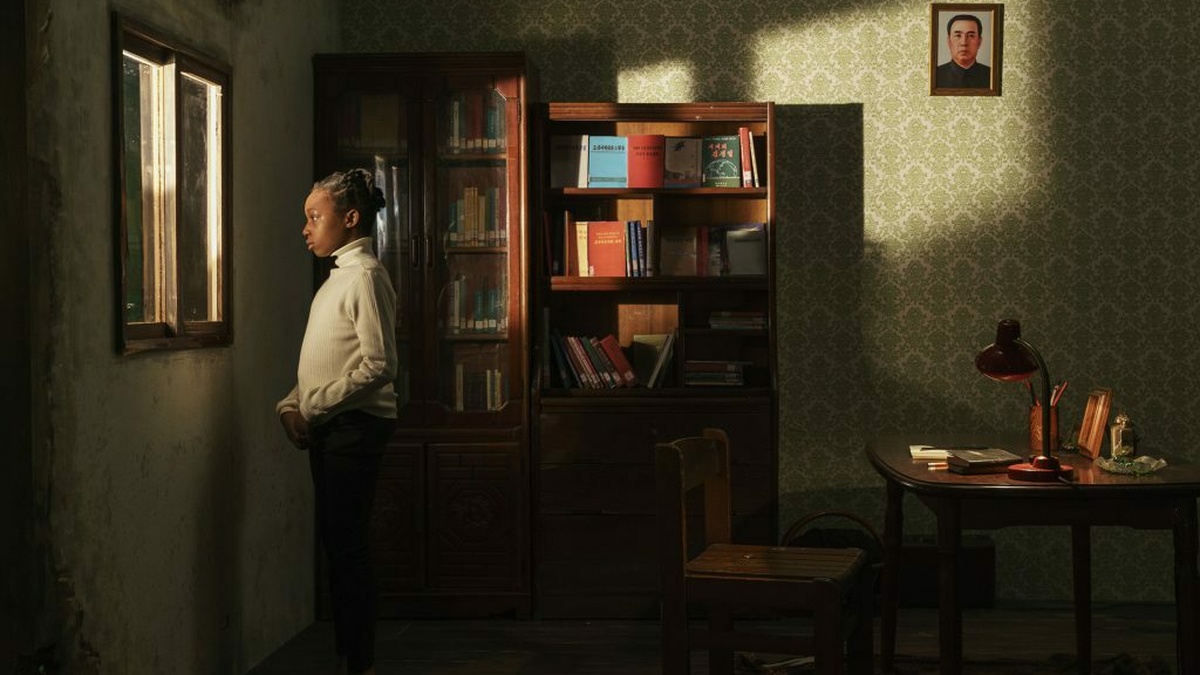You Have Not Yet Been Defeated
Short Film Collection
Wed 12 June 2024

Wheelchair accessible
Hearing loop

Che Onejoon, My Utopia, 2018 (still)
As part of the You Have Not Yet Been Defeated exhibition, the School of Mutants, in collaboration with curator Thomas Abercromby, have selected a series of short films by Asian and African filmmakers that explore Afro-Asian connections. These films address various subjects, including daily life, politics, the global supply chain, and technological development. Collectively, they provide a critical examination of how technology, history, and culture intersect to shape the representation and perception of identity.
François Knoetze's Core Dump is a series of four films: Kinshasa, Shenzhen, New York, and Dakar. As part of this event, we will be showing Shenzhen. The project explores the relationship between digital technology, cybernetics, colonialism, and the reenchanted notion of a Non-Aligned Humanist Utopia.
The four films of Core Dump are rhizomatic assemblages of found footage, performance documentation, and recorded interviews, forming narrative portraits of the uncertainty in the nervous system of the digital earth. These films are fragmented arrangements of images and sounds, with each chapter creating links across geographic and temporal discontinuities. The conceptual framework draws from audiovisual archives and responds to the pan-African, Marxist utopias of early African cinema (particularly Ousmane Sembene's films), and a range of writers and thinkers, including Donna Haraway, Sylvia Wynter, Louis Chude-Sokei, Gayatri Spivak, Frantz Fanon, and Aimé Césaire.
Che Onejoon's thought-provoking video My Utopia opens with a round table of women asking and answering questions "Who am I? Where did I come from? Where should I go?" Among them is Monique Macías, the daughter of Francisco Macías Nguema, the first Prime Minister of Equatorial Guinea. In the early 1970s, after Equatorial Guinea and North Korea signed a treaty, Nguema sent Monique to live in North Korea. There, she and her siblings were adopted by Kim Il-Sung, the first Supreme Leader of North Korea. Monique remained in Pyongyang until 1994, even after her father was overthrown and executed in 1979. My Utopia blends real documentary footage of Monique's life with staged, cinematic scenes featuring actors portraying both her younger and adult selves, as well as North Korean figures from her past. The film shifts between different languages, voices, and performance styles, occasionally breaking the fourth wall to reveal the set, creating a layered narrative that blurs the lines between reality and fiction, leaving audiences unsure of what is true.
Musquiqui Chihying's The Lighting revisits issues of discrimination rooted in technological development and image production. The film features three professional Togolese photographers as they explore techniques to compensate for insufficient exposure when photographing dark skin tones. Additionally, a leading software engineer from Taiwan’s MediaTek discusses the popularity of a newly developed camera algorithm on the African continent. Chihying, inspired by the the popularity of Tecno mobile phones in Africa (for whom Mediatek developed the algorithm) employs Kodak’s Ektachrome, a popular film material from the 1970s, to create a kung fu movie in the style of an exploitation film, incorporating images of the famous Black martial arts star Jim Kelly, known for his roles in Bruce Lee’s 1970s movies. The work is interwoven with an animated Bruce Lee as the narrator, brought to life through facial motion capture technology and a speech recognition algorithm.
The film screenings will be followed by a Q&A session with Lou Mo from the School of Mutants, as well as curator Thomas Abercromby.